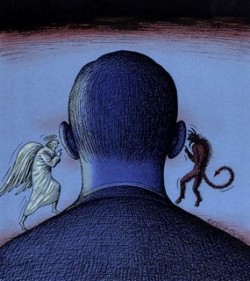 |
| Bet that bear packs a punch. |
Here are three must-haves for your awesome novel ending.
Go big or go home
The final scene should be BIG. You can achieve this in a
number of ways.
Involving more people than you’ve had in any previous scene:
- Maybe all the characters with intertwining stories finally come together in one big hullaballoo
- Or maybe it’s a crowd of extras to intensify the action and chaos (this could be a slavering audience, a group of protesters, a party)
Going to a new dramatic location
- Somewhere high up, perhaps, with big views and lashing weather
- Somewhere with lots of people (see above), such as a gladiatorial arena
Ideally you’ll involve all of the factors that give a sense
of scale, by crashing all the major characters together, along with a big crowd
of onlookers, in a gladiatorial arena at the peak of a mountain in the middle
of a storm.
Obviously that’s only going to work in certain types of
stories, but a lot of these elements can be used in all genres. Having an
onlooking crowd as the boy finally admits his love to the girl (or the other
way round) in a romcom is pretty common, and having a faceoff between the
detective and serial killer on the top of a tall building is also hallowed
ground.
Give your main character an impossible choice
You can read about this in more depth here (http://thenovelfactory.blogspot.co.uk/2012/10/secret-to-thrilling-climax-to-your.html)
but in essence, this is about giving your protagonist a character defining
choice.
Ideally this choice will be between attaining the goal she’s
been chasing the whole story – but at a terrible price – and doing the right
moral thing, but losing all she’s been personally longing for.
You can make your protagonist make the ‘right’ choice or the
‘wrong’ choice – it really depends on what sort of feeling you want to leave your
readers with, the important thing is that the outcome reflects justice.
So if they sacrifice their wants for the greater good,
something happens to give them an even better reward.
But if they choose to be selfish, their prize should turn
out to be poison.
Make the triumph follow a tragedy
This isn’t about what you do in the final scene, but what
you do just before it. In the scenes preceding the climax, your lead character
should have reached rock bottom, and had a moment so low they could not
possibly get any lower. They felt that life was not worth living. There seemed
to be no light at the end of the tunnel.
By having this low, it makes the climax, and probably
triumph (assuming you’re writing that sort of thing) feel all the more
exuberant.























Follow Us
Follow us for more hints, tips and useful writing resources.